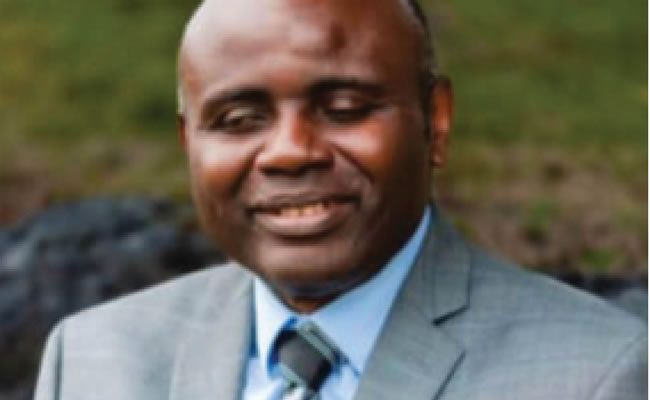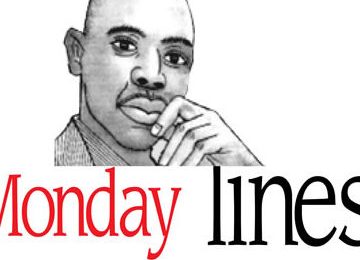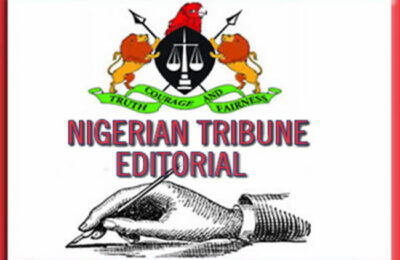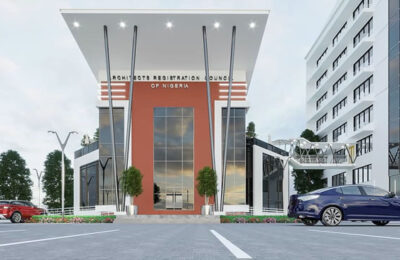Though with visual impairment, Dr Ifeolu Akintunde is a man of many parts –a lawyer, businessman, singer and keyboardist. In this interview, he says his impairment is not a barrier to attaining excellence and helping others, many of whom are physically able. Excerpts:
Can you tell us briefly about yourself?
I was born in Ibadan, Oyo State. My father is a civil engineer and my mother was a nurse. I was born well with a little bit of sight, but that sight waned gradually. I attended the school for blind people and then, Kings College, both in Lagos. I also went to the University of Lagos where I studied Law and got called to the Bar. Then, I traveled to the United Kingdom for my Master’s degree and m y Doctorate in International Relations. I completed that and started to look for work but that’s a very difficult prospect for a blind person. Statistics show that 60 per cent of people who are blind in the United Kingdom are unemployed but I tried to overcome it. I was saying to myself, “well, you’ve got a Ph.D, you should be able to get a job,” but I didn’t. In the end, you know, God literally walked me through setting up my own company. I eventually had a website and God is really blessing me in this. I believe that, in many ways, my life has been a testimony of God’s provision.

During the Sunday service, you played the keyboard and also sang. How did you manage to learn to play the keyboard?
I learned how to play the keyboard in my primary school. I was actually taught by a blind man who had gone to study at the Royal College of Music in Edinburgh, Scotland. But teaching me how to play the piano was very difficult; teaching a blind person to play the piano is difficult because you have to memorise every song. Of course, we read with our hands and we play with our hands. So, what they will teach you is to read with your right hand and play what you’re reading with your left hand. Then, you read with your left hand and play what you’re reading with your right hand.
So, if you want to play with your two hands, there’s no way you have to memorise it. So I liked the music I produced but I didn’t like the process of producing the music. So, as a young person, I think I struggled with music. Even though I struggled with music, my parents bought me a piano. I really began to look at this piano as much more than just a piece of decoration and I started to play more and more. And I learned to play the piano in a different way from other people.

What I wanted to do was to really understand the piano. I learned its movement. I learned about it as an instrument, not as something to play in that sense. And so, because I understand my piano, I understand what I’m doing with it. I understand how to make it do things, not really how to play the song, but how to use the piano pedals, for example, how to play soft, how to play loud because it was easier to do those than to actually learn the technicalities of the music.
While you were playing during the service, you said that there were reasons to praise God with reference to your own personal experience where a school boy challenged you on why a blind man still praised God. Can you shed more light on that?
It was a very interesting incident. At this time, I’d finished my Ph.D and I wasn’t doing anything really. We were in a school and I was talking to these 12-year-olds about my faith and the reason I was a Christian. And one of them just said how come you’re a Christian if you’re blind? So, I just gave them the standard answer, “God knows everything.” And then, I went back home that afternoon and I said, “Lord, this person is actually asking me a real question, let’s look at it, Lord. I’m looking for work, I haven’t got any money and things aren’t really working out the way I expected them to. And I’ve got a doctorate.” And God began to answer me in the most remarkable way. God began to show me things. First, I am a blind person. You see, among other things, blind people understand that others don’t understand empathy. We understand what it is like not to have what you want. And so, in many ways, I started to realise that I’d learned many things and not just me, even my family had learned many things because I’d been a blind person. My blind friends like to come to our house because they met, in my family, people who understood how to treat a blind person. So, I had learned not only the difficulties of being a blind person, but also the opportunities of being a blind person. The most important thing I learned, which I found really interesting, was to trust God. There are people who are more disabled than me, not because they’re blind or anything, but because they’re not manifesting God’s work. So, their abilities in that sense to manifest God’s work is reduced. And that is where the test of my own disability is; it is not whether you are blind or deaf..
You were able to scale through Law School, considering the fact that Law is a very extensive and demanding programme. How were you able to do all these?
The truth is that I never realised I was blazing any trail. I was actually the first blind person to study Law at UNILAG. Across the country, I think there was somebody else in OAU and another in University of Jos who had studied Law before me. And when I came to do my Master’s degree in international relations, I said, yes. He said because when they said that you were coming to Lancaster University for your masters, we had never had a blind person. So, we were really debating as to whether to have you or not, and we are really glad you’re enjoying it. That was about six or seven months into my programme, I may not have been the first to study in the university, but certainly in that department, I was the first. Really, I’m not doing anything major in that sense. I didn’t look at it as though I’m going to be the first to do this. I didn’t look at it as a major achievement. It was the same thing with the company. So, I had company. It was about two or three months after that it occurred to me that I needed to have a bank account. So, it was almost like I was stumbling into it. And then, I had the website.
What do you basically do for a living now?
I have this company, it’s called IOA Consults Limited. I do a lot of work for students. I proofread their work, I give them advice, I help them, I represent them sometimes in university matters. I draft stuff for people. I also work with persons with disabilities; blind people. There’s something called Assistive Technologies where my telephone and computer can speak to me. With all that, I teach people how to use them and I work with them. I also advocate. I run awareness courses on blindness and disability generally. I also help organise and arrange events. In addition to that, I work with an organisation called the Overseas Fellowship of Nigerian Christians. I helped them with drafting their constitution. I became the national publicity secretary till now. I edited the magazine of the fellowship, Arise. I also work with the Nigerian students who are coming into the United Kingdom. We talk to them about how they can best live through their experiences in the UK and how they can write their curriculum vitae, write their essays and look for work etc.
In essence, you still help those who are not challenged in spite of your challenges?
Well, maybe because of that, I recognise that a lot of people have difficulties. Some don’t admit it, but I know what it’s like being an underdog. I know what it’s like to be in difficulty and to look for a solution. If I can be the one who’s helping in one way or another, I’m always very happy to do that.
What advice do you have for people who are challenged in one way or the other?
As I said earlier, in our lives, we shouldn’t focus on challenges, we should focus on God. That’s where everything comes from. You see, if we look at God rather than ourselves, it helps us to put things in perspective. Sometimes, we all look at disability as the end of the world but it actually isn’t. It’s not the end of the world if you focus on God. There are open doors, there are ways in which we can overcome any challenge. And my advice to people is to look for those opportunities and to trust God to lead them through it. That is the way forward.
This interview was conducted by NIYI ADEBIMPE, ex-staff member of the Nigerian Tribune, in the United States of America.
READ ALSO FROM NIGERIAN TRIBUNE







